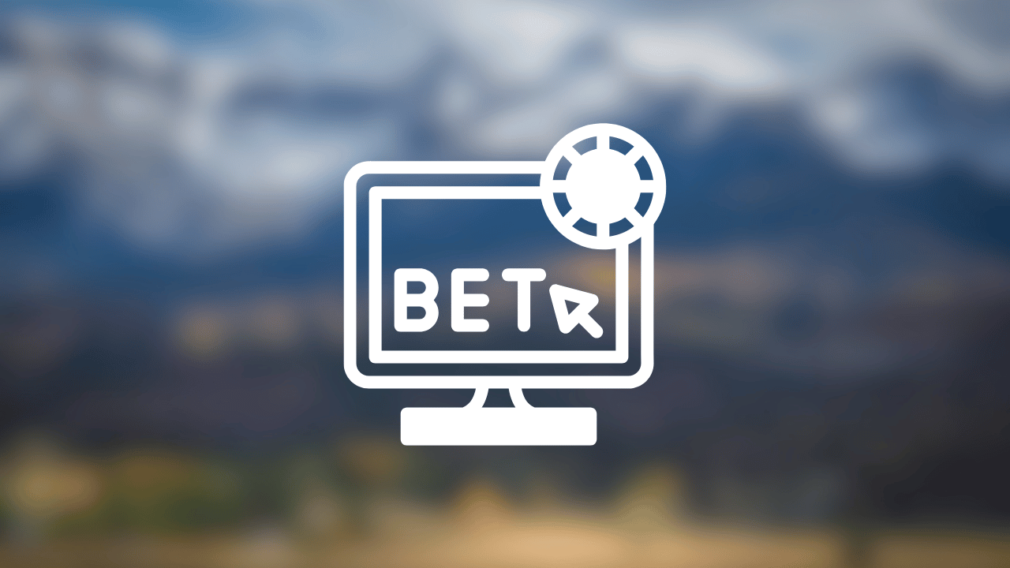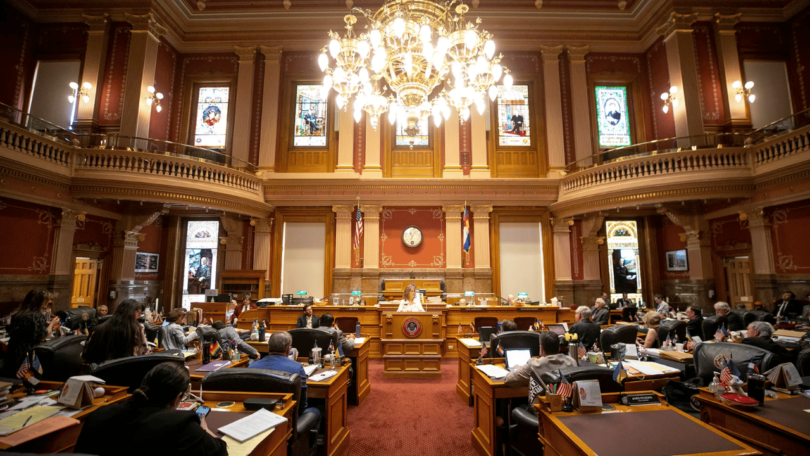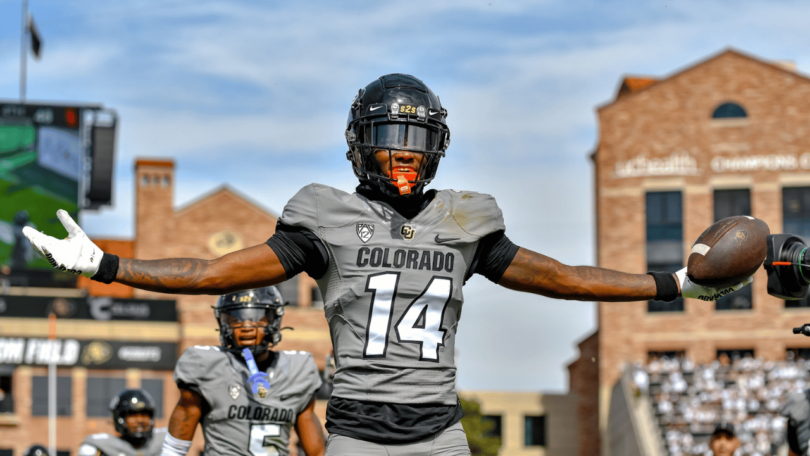Is Sports Betting Legal in Colorado? Everything You Need to Know
Sports betting in Colorado has flourished since its legalization in 2020, offering a comprehensive mix of online and retail options. Backed by strong regulations and a commitment to responsible gambling, the state has become a top destination for bettors while contributing millions to public projects.

Is Sports Betting Legal in Colorado?
Absolutely! Sports betting is 100% legal in Colorado, and the state has embraced it with open arms. The action kicked off on May 1, 2020, with online sportsbooks leading the way.
Not long after, on June 18, 2020, retail sportsbooks opened up in casinos, giving fans the option to bet in person. This all became possible thanks to Proposition DD, a voter-approved measure passed in 2019 that put a solid framework in place for legal sports betting.
Whether you’re into betting from your phone or at a casino, Colorado’s got you covered with one of the most forward-thinking setups in the country.
Legalization and History
The journey to legal sports betting in Colorado began with House Bill 1327, passed by state lawmakers in May 2019. However, Colorado’s Taxpayer Bill of Rights (TABOR) required voter approval for any tax-related measure. This led to Proposition DD, which appeared on the November 2019 ballot. After a closely contested vote, the measure was approved, paving the way for the official launch of sports betting in May 2020.

Colorado’s move to legalize sports betting wasn’t just about aligning with national trends—it addressed several key priorities. Public support for legalization was strong, and the state saw an opportunity to boost revenue for critical needs.
A portion of the taxes collected from sports betting is dedicated to funding water conservation projects across the state, helping to secure Colorado’s environmental future. By embracing both online and retail betting, Colorado has created a system that’s accessible, well-regulated, and financially beneficial for its residents.
Regulatory Framework
Colorado’s sports betting system is built on a foundation of strict oversight and consumer protection. Two key organizations ensure everything runs smoothly: the Colorado Division of Gaming, which handles licensing, monitoring, and enforcement, and the Colorado Limited Gaming Control Commission (CLGCC), which develops policies and approves operators. Together, these bodies maintain a fair and secure betting environment for both consumers and businesses.
Getting licensed to operate in Colorado isn’t easy—nor should it be. Potential operators go through an extensive vetting process that includes financial evaluations, background checks, and detailed business reviews. Depending on the type of operation, businesses must apply for one of three licenses:
- Casinos can obtain a master license to host partnerships with both retail and online sportsbooks.
- Retail sportsbooks require a separate license to operate physical betting locations.
- Online sportsbooks must secure their own license to provide mobile and desktop betting services.
Each casino in Colorado—there are 33 in total—has the opportunity to apply for a master license, but the costs are steep. An initial master license fee starts at $10,000, with $125,000 due every two years for renewals. Online platforms pay $54,000 annually, while retail operators are billed $12,500 each year.
Recent Developments in Colorado Sports Betting
- [September 9, 2025]: New Colorado Initiative Targets Gambling Stigma in Military Community
- [July 23, 2025]: Hard Rock Bet Is Now Live in Colorado
- [July 21, 2025]: DraftKings Fined $90,000 in Colorado for Illegal Bets
- [May 19, 2025]: Governor Polis Signs Colorado Bill Ending Free Bet Tax Deductions
- [May 9, 2025]: Colorado’s Sports Betting Tax Bill Stalls
Where to Bet on Sports in Colorado
Sports betting in Colorado comes with plenty of options, whether you enjoy the buzz of a casino floor or the convenience of placing bets from your phone. The state offers two main avenues: in-person betting at casinos or online betting through apps and websites, each with its own perks.
Exploring Retail Sportsbooks
If you prefer the traditional betting experience, retail sportsbooks in Colorado are housed exclusively in casinos. You’ll find most of them in the charming mountain towns of Black Hawk, Central City, and Cripple Creek. While these locations make for a fun day trip or weekend getaway, they’re not always close to major cities, which can limit accessibility for some residents.

Casinos like Monarch Casino Resort Spa, Ameristar Casino, and Bally’s Black Hawk have dedicated sportsbook spaces where you can place bets, watch games, and soak up the excitement. Whether you’re a seasoned bettor or new to the scene, these venues offer an immersive and social way to enjoy sports wagering.
Colorado’s Thriving Online Market
For those who want to skip the drive and bet from the comfort of home, Colorado’s online sports betting market is among the most advanced in the U.S. The state boasts 13 licensed platforms, including big names like DraftKings, FanDuel, BetMGM, and Caesars Sportsbook.
Here’s the complete list of online sportsbooks operating in Colorado as of January 2025:
- BetMGM
- BetMonarch
- Bally Bet (temporarily shut down but expected to resume)
- Caesars Sportsbook
- Circa Sports
- DraftKings
- ESPN BET
- Elite Sportsbook
- Fanatics Sportsbook
- FanDuel
- PlayUp Sportsbook
- SBK/Smarkets
- Sky Ute Sportsbook
Online sportsbooks in Colorado must legally partner with a local casino, adding an extra layer of accountability and oversight. These platforms make it simple to browse odds, place bets, and even enjoy live in-game wagering. Plus, many offer enticing bonuses for new users, making it easy to dive in and explore.
Betting Options and Restrictions
Colorado’s sports betting market offers something for everyone, but there are clear rules and restrictions to keep in mind. Whether you’re a fan of professional leagues or college sports, it’s important to know what’s allowed and what’s off-limits in the state.
What You Can Bet On
- Professional Sports: Bettors in Colorado can wager on all major professional leagues, including the NFL, NBA, MLB, NHL, and MLS, as well as niche options like the PGA Tour and UFC. Betting options range from moneyline bets and point spreads to totals (over/under) and proposition bets (prop bets) on specific events during a game.
- College Sports: Wagering on college games is permitted, but with one notable exception: individual player prop bets are prohibited. For instance, you can bet on which college team will win a game, but you can’t place a wager on how many points a specific player might score.

What’s Off-Limits
- High School Sports: Betting on high school athletic events is strictly prohibited in Colorado. This restriction is designed to protect young athletes from the influence of gambling.
- Unlicensed Platforms: Placing bets on unregulated or unauthorized platforms is illegal. These platforms lack oversight, often operate unfairly, and don’t provide any protection for players. To stay safe, bettors are advised to stick with licensed operators like DraftKings, FanDuel, BetMGM, Caesars Sportsbook, and other approved platforms.
Play it Smart
With a wide array of betting options available and a clear set of restrictions, Colorado ensures a safe and enjoyable environment for sports bettors. By sticking to licensed sportsbooks and following state rules, you can confidently enjoy the excitement of sports betting without any legal or security concerns.
Taxation and Revenue Allocation
Colorado’s sports betting industry operates under a 10% tax rate on gross gaming revenue (GGR), making it one of the more operator-friendly states in the U.S. This competitive tax rate has attracted numerous sportsbooks to the Colorado market, helping to establish a thriving and diverse betting ecosystem.
What sets Colorado apart is how it uses these tax revenues. Since the legalization of sports betting in 2019, the state has prioritized funding critical water-related projects. This focus stems from House Bill 1327 and Proposition DD, which earmarked betting taxes for initiatives like irrigation improvements, water storage solutions, and programs addressing the growing demand for water resources amidst climate challenges.
In 2023 alone, Colorado allocated $10.6 million from sports betting taxes to its water conservation efforts. While this remains the primary focus, portions of the revenue also support education, public health, and safety programs, ensuring broader benefits for residents.
Recently, voters in Colorado approved Proposition JJ, signaling a shift in how these funds will be distributed. Under this new plan, revenue from sports betting taxes will transition from exclusively funding water projects to supporting environmental conservation initiatives. This change reflects the state’s growing commitment to sustainability and addressing climate-related challenges.
Market Growth and Economic Impact
Since legalizing sports betting in 2019, Colorado has witnessed an extraordinary expansion of its market, cementing its position as one of the fastest-growing hubs in the U.S. This growth is reflected in the state’s steadily increasing sports betting handle, which has set new records year after year.
- 2020: Despite the challenges of the COVID-19 pandemic and temporary closures of retail sportsbooks, the market managed a strong start, generating $1.19 billion in handle.
- 2021: With operations stabilizing and online betting surging, the handle jumped to $3.83 billion.
- 2022: Growth accelerated further, breaking the $5 billion mark.
- 2023: Colorado’s market hit a new high, with $5.56 billion in bets placed.
These numbers highlight the increasing popularity of sports betting in the state and its untapped potential as more residents and visitors join the action.
Economic Contributions
The rapid expansion of sports betting in Colorado has had a significant ripple effect on the state’s economy:
- Revenue for Public Projects: With a 10% tax rate on gross gaming revenue (GGR), Colorado collects millions annually to fund critical initiatives, including water conservation projects, addiction treatment programs, and other public services.
- Boost for Local Businesses: The industry stimulates sectors like hospitality, dining, and entertainment, drawing visitors to casinos and increasing consumer spending.
- Job Creation: From customer service roles to advanced tech and analytics positions, sports betting has created a variety of employment opportunities within the state.
What’s Driving Colorado’s Growth?
Several key factors have propelled Colorado’s sports betting industry to new heights:
- Favorable Regulations: Colorado’s operator-friendly legal framework encourages competition and innovation, making the state an attractive market for sportsbooks.
- Online Accessibility: The ability to place bets through mobile apps and websites has brought unmatched convenience, driving widespread adoption among players.
- Sports Culture: Home to iconic teams like the Denver Broncos and Colorado Rockies, the state’s strong sports following naturally fuels betting enthusiasm.
- Innovative Offerings: Sportsbooks in Colorado continue to roll out new features, from live in-game betting to creative marketing campaigns, ensuring the market stays fresh and engaging.
Colorado’s sports betting industry isn’t just about the numbers—it’s about building an ecosystem that drives economic growth, supports local communities, and creates an accessible and exciting experience for sports fans across the state.
Responsible Gambling Initiatives
Colorado has made responsible gambling a cornerstone of its sports betting industry, implementing a range of initiatives to educate players, provide support, and ensure a safe betting environment. By partnering with sportsbooks, regulators, and nonprofit organizations, the state aims to address gambling-related risks while promoting a culture of safe and informed play.
Promoting Safe Betting
One of Colorado’s key strategies is raising awareness about responsible gambling. Campaigns like “Play Legit. Gamble Only Where Legal.” remind players to stick to licensed platforms, emphasizing the dangers of unregulated operators, such as fraud and lack of consumer protections. These efforts highlight the importance of using legal sportsbooks to ensure fairness and security.
In addition to educational outreach, the state provides easy access to resources for those struggling with gambling-related issues. Licensed sportsbooks and regulatory websites feature information about hotlines, counseling services, and support groups, ensuring help is always available. Organizations like the Problem Gambling Coalition of Colorado play a vital role by offering comprehensive assistance to individuals and families dealing with gambling addiction.
Combating Illegal Gambling
Colorado also actively works to curb illegal gambling activities. Public awareness campaigns educate players about the risks of using unregulated platforms, including financial losses, scams, and the absence of legal recourse. Meanwhile, the Colorado Division of Gaming collaborates closely with law enforcement to identify and shut down unauthorized operators. These measures protect consumers and help maintain the integrity of the state’s sports betting market.
Comparison with Neighboring States
When it comes to sports betting, Colorado stands out from its neighboring states with a more developed market, operator-friendly regulations, and an unmatched variety of options for bettors. Here’s how Colorado compares to its closest neighbors:
Neighboring States Overview
- Wyoming: Sports betting is legal, but the market is much smaller, with only a single online operator available.
- Nebraska: Legalized sports betting in 2021, but it’s limited to retail sportsbooks at casinos. Online betting has yet to gain traction in the state.
- Kansas: Offers both online and retail sports betting, but its market is still catching up to Colorado in terms of size and competition.
- Oklahoma: Sports betting remains illegal, leaving residents without legal options for wagering.
- Arizona: Closest in scope to Colorado, with a well-developed market that includes both online and retail sportsbooks and a wide array of operators.
What Sets Colorado Apart
- Market Size and Competition: Colorado boasts one of the largest selections of licensed online sportsbooks in the U.S., with 16 active operators. This robust competition means players benefit from generous welcome bonuses, competitive odds, and a range of innovative betting options.
- College Sports Betting: While many states impose strict restrictions on wagering on college sports, Colorado allows it—with the exception of individual player prop bets. This flexibility appeals to fans of collegiate athletics while maintaining a level of protection.
- Low Tax Rate: Colorado’s 10% tax on gross gaming revenue (GGR) is one of the lowest in the country, making the state an attractive destination for operators. This not only encourages market growth but also results in better offerings for players.
- Focus on Responsible Gambling: Colorado leads the charge in promoting safe betting practices through campaigns, resources, and support systems. This emphasis ensures that the market grows sustainably while protecting players.
By blending innovation, accessibility, and consumer protections, Colorado has established itself as a sports betting powerhouse in the region. Neighboring states may be developing their markets, but Colorado’s forward-thinking approach keeps it ahead of the pack.
FAQs About Sports Betting in Colorado

Here are answers to some of the most frequently asked questions about sports betting in Colorado:
Can I bet on college sports in Colorado?
Yes, you can place bets on college sports, including games involving Colorado-based teams. However, individual player prop bets for college sports are prohibited.
What is the legal betting age in Colorado?
To place bets on sports in Colorado, you must be at least 21 years old. This applies to both online and retail sportsbooks.
How do I know if a sportsbook is legal in Colorado?
Legal sportsbooks in Colorado are licensed and regulated by the Colorado Division of Gaming. Always check for licensing information on the sportsbook’s website or app.
Are my winnings from sports betting taxable?
Yes, all gambling winnings, including sports betting, are subject to both federal and state taxes. Colorado residents must report their winnings when filing taxes.
Can I bet online, or do I have to visit a casino?
Colorado allows both online sports betting and retail sportsbooks. Online sportsbooks are easily accessible via apps or websites, offering a convenient option for bettors.
What should I do if I think I have a gambling problem?
If you or someone you know is struggling with gambling, resources like the Problem Gambling Coalition of Coloradoand helplines are available to provide support. Many licensed sportsbooks also provide tools to help you set limits or self-exclude.
Recommended

